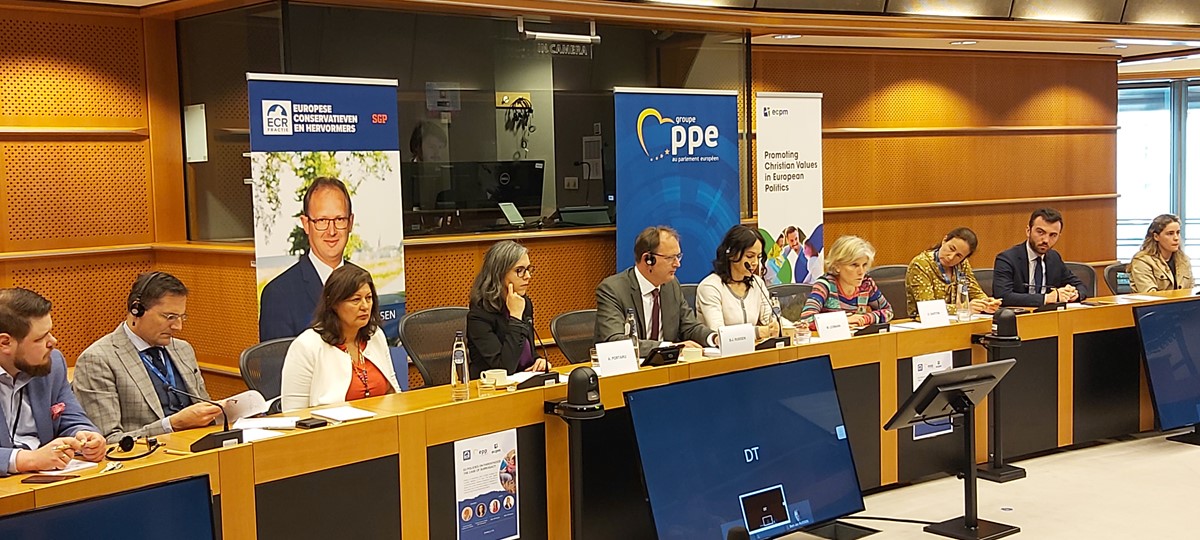
Tuesday, May 23, 2023
MEPs warn of danger of surrogacy violating human dignity
The European Christian Political Movement together with the offices of MEPs Bert Jan Ruissen (ECR) and Miriam Lexmann (EPP) organized a conference on parenthood policies in the European Union, with a focus on the issue of surrogacy. The two keynote speakers invited to provide expertise on the matter were Dr. Adina Portaru, Senior Counsel for the faith-based legal advocacy organization ADF International and Olivia Sarton, the scientific director of the French children’s rights organization Juristes Pour l’Enfance (Lawyers for Childhood).
This conference comes as a response to the European Commission’s recent proposal for a EU-certificate of parenthood which is currently being debated in the European Parliament. This initiative would put pressure on member state governments to sanction surrogacy even though a country may not allow the practice. It also comes as a contradiction to what the Commission has repeatedly said on various occasions: that the European institutions do not have competence over issues like family, marriage, parenting, etc.
The hosts suggested that surrogacy fuels abuse, human trafficking, violating the rights of vulnerable women and children, in essence violating human dignity. The practice commodifies both children and women’s wombs, which is unacceptable.
Olivia Sarton underlined that surrogacy is a new form of exploitation that takes advantage of the bodies of women and appropriates the children they bear. She added that the conditions under which many women consent to the practice (state of need and psychological fragility) cast doubt on whether they freely gave their consent. She also made reference to the Casablanca Declaration, which calls for the universal abolition of surrogacy.
According to Dr. Portaru, the above-mentioned proposal of the European Commission puts into practice a very specific objective that the EU has pursued and promoted in the past years, captured in the slogan: “If you are parent in one country, you are parent in every country.” According to Dr. Portaru this means that “if one EU country recognizes, for example, a US judgment which recognizes parenthood emanating from a surrogate agreement, that relationship or birth certificate will have to be recognized throughout the EU. Therefore, de facto, all kinds of surrogacy will be allowed and justified through the proposed regulation.”
Speakers and hosts agreed that instead of regulating the practice of surrogacy, which would only create demand, efforts should be made to highlight that surrogacy means, in essence, the commodification of children who become objects of surrogacy agreements, which is a deep violation of their human dignity.